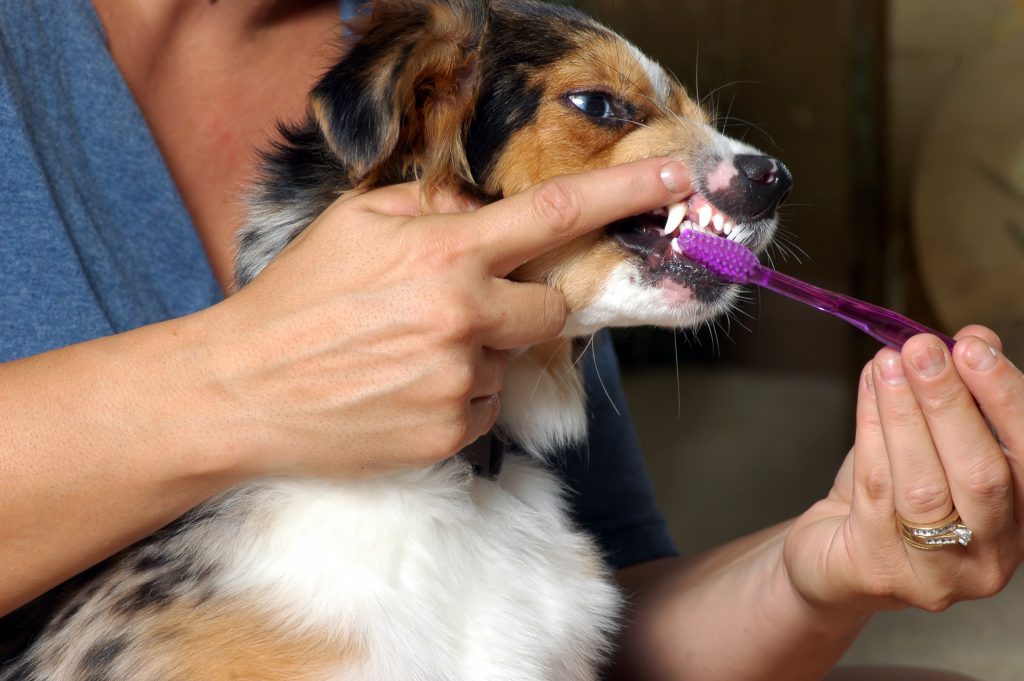Knoxville TN Animal Clinic, Knoxville Veterinarian
Understanding and Preventing Pet Heat Diseases
 It’s hot, it’s sticky, and all you want to do is hide inside with the air conditioning or jump into an ice cold pool. Summer in Tennessee is not for the faint of heart, and if humans are feeling the effects of extreme heat, you can be sure our pets are also experiencing it. Because of the differences in the way our pets’ bodies handle the hot weather, they’re at greater risk for certain heat-related ailments; keeping an eye on them during the hottest part of the year is essential.
It’s hot, it’s sticky, and all you want to do is hide inside with the air conditioning or jump into an ice cold pool. Summer in Tennessee is not for the faint of heart, and if humans are feeling the effects of extreme heat, you can be sure our pets are also experiencing it. Because of the differences in the way our pets’ bodies handle the hot weather, they’re at greater risk for certain heat-related ailments; keeping an eye on them during the hottest part of the year is essential.
Let’s take a moment to learn more about pet heat diseases, including how to prevent and recognize them.
Heat Stroke
Heat stroke is defined as a life-threatening elevation in body temperature, and it’s the most dangerous of all pet heat diseases. Heat stroke usually occurs in warm weather, and it can lead to multiple organ failure and death if left untreated. Signs your pet may be experiencing heat stroke or heat exhaustion include: Continue…
Catios and Other Forms of Cat Enrichment: Guaranteed to Get Fluffy Going
 There are few things more entertaining than watching a cat play, stalk, pounce, stare-down, and ambush their “prey”. Luckily, there’s an endless supply of funny cat videos online to keep us going throughout the day!
There are few things more entertaining than watching a cat play, stalk, pounce, stare-down, and ambush their “prey”. Luckily, there’s an endless supply of funny cat videos online to keep us going throughout the day!
But, while everyone’s amused by the internet cats, what’s happening with the ones we know and love at home? Are they flinging themselves off dangerous heights, climbing into cardboard boxes three times too small, or cuddling a fellow feline? If so, it might be time to consider the ways you can improve cat enrichment.
The Link
There’s no question that a cat’s overall health is tied to their environment. Of course, there are other things that are just as important, such as vaccines and parasite prevention, nutrition, and dental care, but the link to feline happiness is undoubtedly their surroundings. Continue…
Factor in Pet Safety When It Comes to Summer Activities
 Summer has arrived, and if you have children in the home, this is likely a time of great rejoicing. Visions of running through the sprinklers, popsicles on the porch, endless crafts, and other summer delights fill the heads of the youngest family members, and, of course, the family pet must be involved in the fun.
Summer has arrived, and if you have children in the home, this is likely a time of great rejoicing. Visions of running through the sprinklers, popsicles on the porch, endless crafts, and other summer delights fill the heads of the youngest family members, and, of course, the family pet must be involved in the fun.
Before diving into to your to-do list of activities and adventures this summer, take a moment to make sure pet safety is at the top!
Outdoor Fun
Nothing screams summer like playing outdoors with the family pet, especially if there’s a pool, sprinkler, or hose involved. While everyone is out soaking up the sun, it’s important to remember that pets can easily succumb to dehydration and heatstroke during the warm and humid months. Keep the following tips in mind to protect your pet this summer:
- Make sure pets have access to plenty of shade and fresh, cool drinking water at all times while outdoors.
- Keep pets inside as much as possible on very hot or humid days.
- Let your kids and pets keep cool in a shallow kiddie pool or sprinkler.
Pet Cancer: A Primer
 Hearing that your pet has cancer is a frightening experience, but according to the National Canine Cancer Foundation, 1 out of 3 dogs will receive a diagnosis of cancer in their lifetime. For cats, the statistic is 1 out of every 5 according to the Animal Cancer Foundation.
Hearing that your pet has cancer is a frightening experience, but according to the National Canine Cancer Foundation, 1 out of 3 dogs will receive a diagnosis of cancer in their lifetime. For cats, the statistic is 1 out of every 5 according to the Animal Cancer Foundation.
There is good news, however. Some pet cancers are treatable, especially if caught early and treated aggressively. There’s also ongoing research for the development of new treatments, as well as cures for some forms of cancer. At Volunteer Veterinary Hospital, we honor Cancer Awareness Month by exploring common forms of pet cancer and some possible treatment options.
Preventing Lyme Disease in Dogs
 Ticks are known to cause many problems, not the least of which is Lyme disease. Caused by the bacterium Borrelia burgdorferi, Lyme disease is transmitted by the bite of a tick and affects dogs and humans alike. You may be wondering which dogs are at risk, and how do we treat and prevent Lyme disease in dogs. Stay tuned for a primer from your veterinary team at Volunteer Veterinary Hospital.
Ticks are known to cause many problems, not the least of which is Lyme disease. Caused by the bacterium Borrelia burgdorferi, Lyme disease is transmitted by the bite of a tick and affects dogs and humans alike. You may be wondering which dogs are at risk, and how do we treat and prevent Lyme disease in dogs. Stay tuned for a primer from your veterinary team at Volunteer Veterinary Hospital.
Volunteer Veterinary Hospital: What Sets Us Apart as Your Veterinarian
 When it comes to choosing a veterinarian, we know you have a lot of options, which is why we’d like to let you know what you can expect from our team of veterinarians and support staff. Besides our strong knowledge base, focus on keeping up with the latest research, and state-of-the-art facility, our staff takes a caring and individualized approach with each patient.
When it comes to choosing a veterinarian, we know you have a lot of options, which is why we’d like to let you know what you can expect from our team of veterinarians and support staff. Besides our strong knowledge base, focus on keeping up with the latest research, and state-of-the-art facility, our staff takes a caring and individualized approach with each patient.
Our commitment to healing and prevention, combined with the importance we place on the relationships we form with you and your pet, is what makes our team at Volunteer Veterinary Hospital so special.
The Crux of the Matter: How Regular Pet Dental Care Reduces Disease
 When we’re in the dentist’s chair, we’re at the mercy of the technician measuring the pockets between our teeth and gums. Sometimes, a single pocket can be large enough to create painful problems for us, and the same is true for our pets. A normal depth in dogs is about 3 mm; in cats, it’s 1mm. When pockets measure between 4-5mm, it’s really important to get on the ball. Without routine pet dental care, your pet could be in for a world of hurt.
When we’re in the dentist’s chair, we’re at the mercy of the technician measuring the pockets between our teeth and gums. Sometimes, a single pocket can be large enough to create painful problems for us, and the same is true for our pets. A normal depth in dogs is about 3 mm; in cats, it’s 1mm. When pockets measure between 4-5mm, it’s really important to get on the ball. Without routine pet dental care, your pet could be in for a world of hurt.
A Nod and Paw to 2017: Our Five Best Pet Blogs
 While you’re busy writing your 2018 resolutions or working off those holiday pounds, the start of a new year is also a great opportunity to focus on your pet’s health and wellbeing. When we launched our pet blog in 2014, our goal was to provide top-notch information regarding all things pets.
While you’re busy writing your 2018 resolutions or working off those holiday pounds, the start of a new year is also a great opportunity to focus on your pet’s health and wellbeing. When we launched our pet blog in 2014, our goal was to provide top-notch information regarding all things pets.
Whether the topic is something health related, such as pet dental care, or something fun like exploring the great outdoors with your best friend, we hope you’re looking forward to another great year of pet health and wellness blogging!
Now, on to the blogs!
Packing on the Pounds: Pet Obesity
 A fluffy pet is super cute, but what about a fat one? Despite the adorable images of roly poly cats and dogs, there really is nothing cute about an overweight pet.
A fluffy pet is super cute, but what about a fat one? Despite the adorable images of roly poly cats and dogs, there really is nothing cute about an overweight pet.
Pet obesity is a huge factor in the health and quality of life of our animal friends. At Volunteer Veterinary Hospital, helping your pet maintain a healthy weight is a top goal.
Diabetes in Pets 101
 It is Pet Diabetes Awareness Month, and what better time to take a minute to learn about this common affliction in both our dog and cat family members? Join Volunteer Veterinary Hospital as we explain everything you need to know about diabetes in pets.
It is Pet Diabetes Awareness Month, and what better time to take a minute to learn about this common affliction in both our dog and cat family members? Join Volunteer Veterinary Hospital as we explain everything you need to know about diabetes in pets.
Diabetes in a Nutshell
Diabetes is one of the most common diseases in the human population in this country, so most of our pet parents have some concept of what this disease is and how it can affect the body. Many people are shocked to find out, though, that our pets can develop this disease, too.

